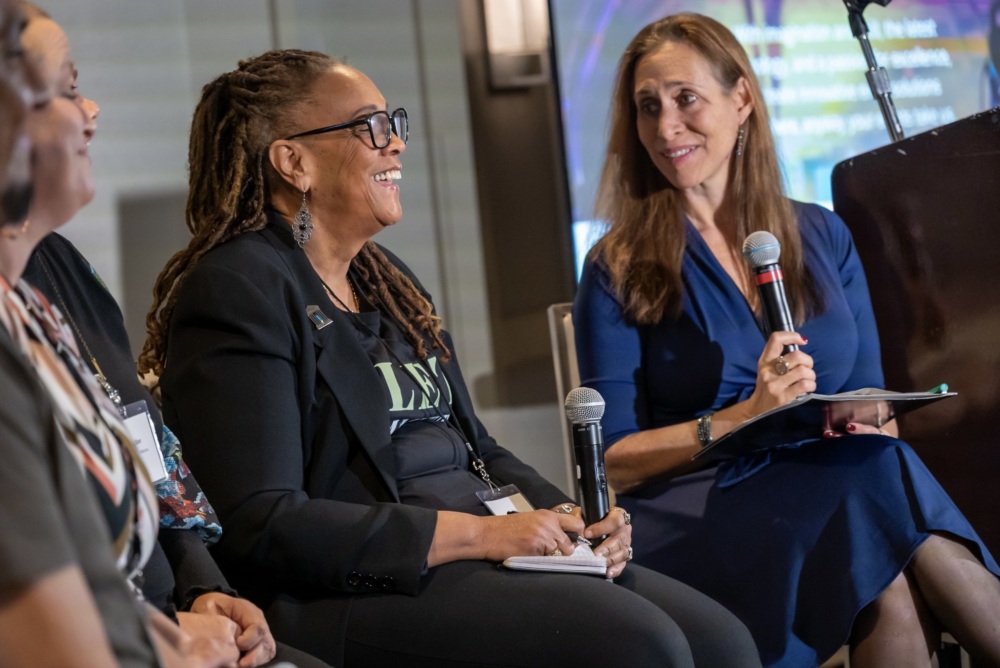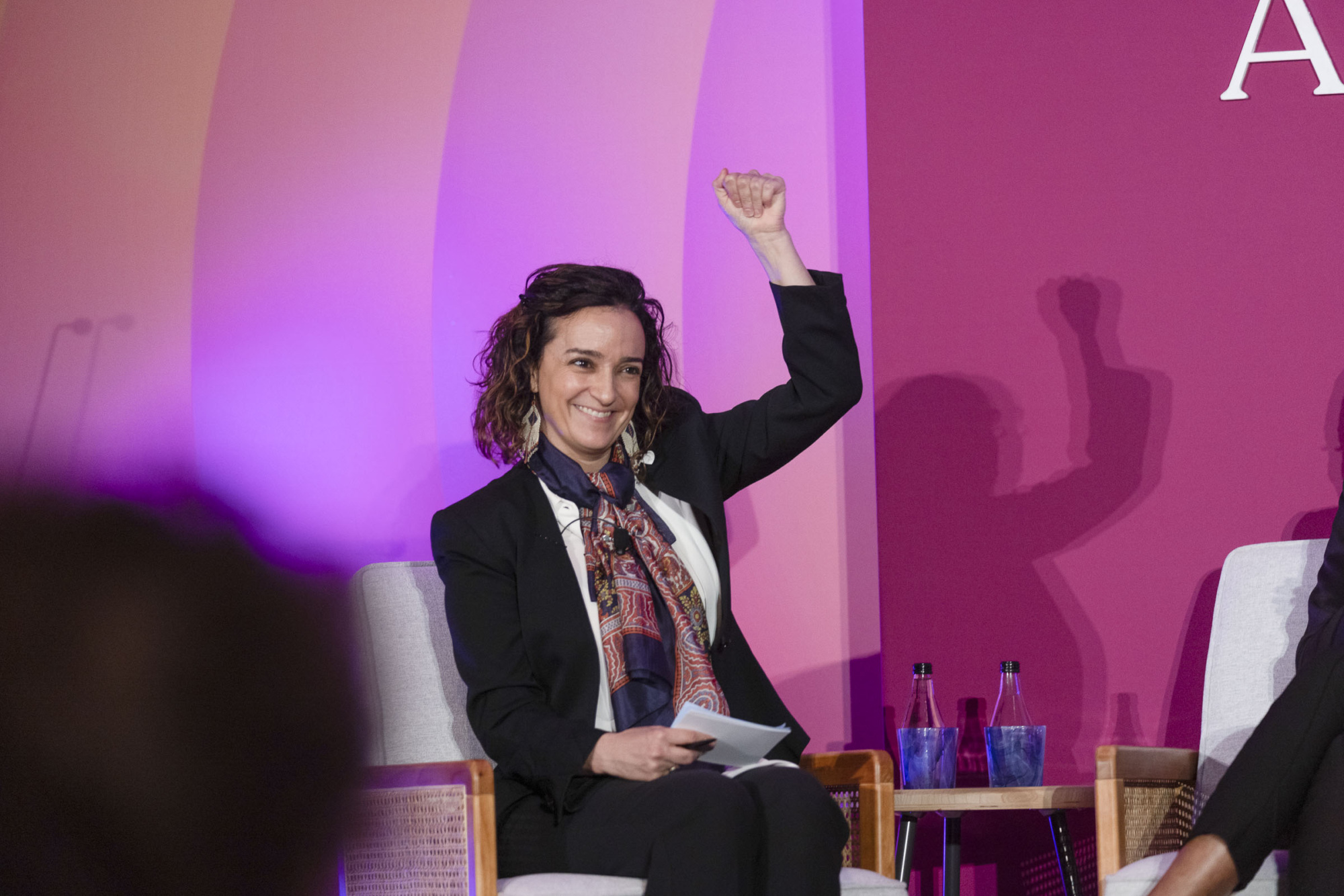Q: What drives your giving and why are you inspired to give to women and girls?
I grew up in a small town in Minnesota in a philanthropic family. My father owned a small business, my grandfather was a minister, and my mom was a non-stop volunteer. By watching all of their good work in the community, I learned to give back at an early age. When I started my career in television, I learned early on how important it was to be mentored by both men and women, and consequently, I decided that I would always support other up and coming young women as I rose through the ranks, because of that support I had received along the way. Giving that gift of confidence to young women in the workplace is crucial. I still have stacks of thank you cards and letters from the young women I advised and it makes me proud to know I may have made a difference in them taking that little risk, stepping outside of the box, and going for a goal they weren’t sure they could achieve.
Q: How do you think about impact in terms of your own giving?
After filing my sexual harassment against Roger Ailes at Fox News, I learned just how few dollars go to supporting women and girls’ issues and I became determined to make those causes my primary grantees when I formed my Gift Of Courage fund. My fund has supported many different women and girl-empowering organizations, angel investments in female-owned startups and has been one of the primary sources of funds for my own recently created nonprofit Lift Our Voices. The mantra I’ve lived my life by is in giving back a person becomes whole. It’s a life lesson I work every day to pass on to my two children.
Q: What does 2021 look like in terms of priorities, new opportunities for growth, and collaboration with your initiative, Lift Our Voices?
Since we launched Lift Our Voices a year ago, the world has drastically changed – but the mission of our work has grown even more critical. At a time when the employment market looks much less certain, employers continue to hold so many of the cards with respect to the workplace environment. Workers who are subjected to sexual harassment or assault, racial or gender discrimination, and other toxic work issues may be even more reluctant to speak out and demand justice because they are worried about a job market in a teetering economy. The mission of eradicating mandatory arbitration clauses and non-disclosure agreements for toxic work issues is all the more important in order to shine the light on inappropriate behavior and to protect employees from predators who threaten their careers and livelihoods.
Our priorities for 2021 include creating ongoing partnerships with other like-minded organizations, establishing collaborative initiatives with academic institutions to more deeply understand the effects of NDAs and arbitration agreements of the American workplace, and conducting qualitative and quantitative research to propose realistic solutions to stakeholders, including legislative and C-suite decision-makers. We have recently begun a fundraising campaign to raise the necessary resources to accomplish this ambitious agenda. And in doing so, we believe we will be able to dramatically change the landscape of the American workplace (and globally) to make it safer for all women and men.
Q: Forthcoming documentary ‘In Her Own Words’ will highlight the use of NDAs and forced arbitration in the workplace to silence targets of sexual harassment – what has inspired you to be so public about your own personal story and mission by being highlighted in this film project?
In 2016, I jumped off a cliff without a parachute when I became the first woman to sue former Fox News Chairman and CEO Roger Ailes for sexual harassment. At the time, I had no idea whether I would be successful or that so many other women had experienced the same toxic workplace environment that I had. My lawsuit helped to ignite the #metoo movement and showed others that one person truly could make a cultural difference.
In the years since I have heard from so many women who have similar stories but who don’t have the megaphone that I do. Ironically, I consider myself to be one of the lucky ones because I have had the platform and the means to speak about this issue. So many of those I hear from our people of color and members of the LGBTQ community, who have traditionally been disenfranchised in the workplace. One-third of all American workers are bound by NDAs and so it is not a surprise that we do not often hear about their experiences. This silence perpetuates the problem by shrouding it in secrecy. I am hopeful that our documentary will demonstrate how pervasive this problem is and how, if we are able to discuss it openly and fearlessly, we can change corporate culture and our nation’s laws to ensure a truly equitable workplace where workers are judged simply on merit.
Q: What does being part of the WMM community mean to you?
I have been so overwhelmed by the support of other WMM members since joining this past summer. I feel so lucky to be a part of an organization where we are all working towards a common goal and where women are so helpful to one another. Already, I’ve made some amazing connections and I look forward to meeting so many more members over zoom and the phone (for now!) and in-person (hopefully very soon!).

